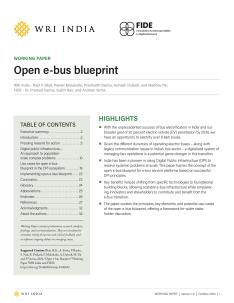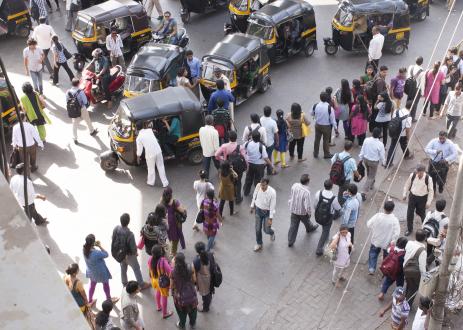Open E-Bus Blueprint
India’s bus transport system serves 399 million daily passengers and accounts for over 90% of public transport trips. India plans to electrify up to 800,000 buses over the next seven years across public, private, and institutional fleets. This working paper by WRI India and FIDE frames the challenges of a digital transition in the bus transport system. It proposes leveraging Digital Public Infrastructure (DPI) principles to create an “open e‑bus blueprint” for scalable service platforms. The paper invites stakeholder consultation to refine this blueprint for effective implementation.

Buses form the backbone of public transportation in India, catering to 39.9 crore (399 million) passengers daily and accounting for over 90% of all public transport trips. As part of a broader goal to reduce transport emissions, India is looking to electrify up to 800,000 buses in the next seven years, including public, private and institutional fleet. Given the different dynamics of operating electric buses, a more connected and digital ecosystem can be a potential game changer in this transition.
In this working paper, WRI India and Foundation for Interoperability in Digital Economy (FIDE) seek to frame and contextualize the challenges the bus transport system will confront amid the complexities of a large-scale digital transition. The paper proposes a novel approach that leverages Digital Public Infrastructure (DPI) principles to guide bus electrification and a roadmap for translating this blueprint into reality.
The paper invites and seeks to enable wider stakeholder comments and consultation on strategic and functional considerations to design an “open e-bus blueprint” for e-bus service platforms based on DPI principles.
Projects

Sustainable Cities
WRI India’s Sustainable Cities program catalyzes environmentally and financially sustainable transport solutions to improve quality of life in citiesVisit ProjectPart of Sustainable Cities
